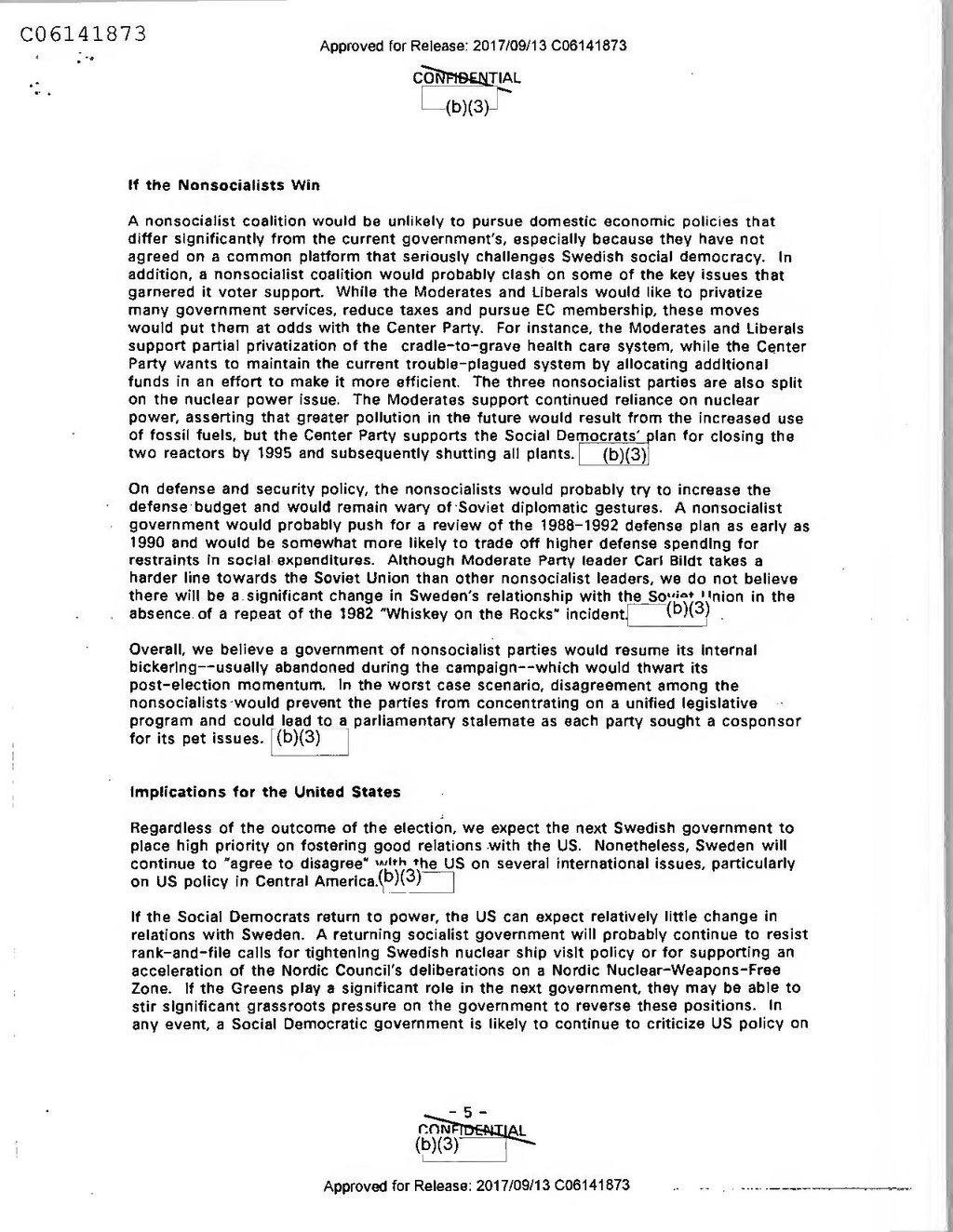CONFIDENTIAL
-(b)(3)
If the Nonsocialists Win
A nonsocialist coalition would be unlikely to pursue domestic economic policies that differ significantly from the current government's, especially because they have not agreed on a common platform that seriously challenges Swedish social democracy. In addition, a nonsocialist coalition would probably clash on some of the key issues that garnered it voter support. While the Moderates and Liberals would like to privatize many government services, reduce taxes and pursue EC membership, these moves would put them at odds with the Center Party. For instance, the Moderates and Liberals support partial privatization of the cradle-to-grave health care system, while the Center Party wants to maintain the current trouble-plagued system by allocating additional funds in an effort to make it more efficient. The three nonsocialist parties are also split on the nuclear power issue. The Moderates support continued reliance on nuclear power, asserting that greater pollution in the future would result from the increased use of fossil fuels, but the Center Party supports the Social Democrats' plan for closing the two reactors by 1995 and subsequently shutting all plants. (b)(3)
On defense and security policy, the nonsocialists would probably try to increase the defense budget and would remain wary of Soviet diplomatic gestures. A nonsocialist government would probably push for a review of the 1988-1992 defense plan as early as 1990 and would be somewhat more likely to trade off higher defense spending for restraints in social expenditures. Although Moderate Party leader Carl Bildt takes a harder line towards the Soviet Union than other nonsocialist leaders, we do not believe there will be a significant change in Sweden's relationship with the Sovietinion in the absence of a repeat of the 1982 "Whiskey on the Rocks" incident.
(b)(3)
Overall, we believe a government of nonsocialist parties would resume its internal bickering--usually abandoned during the campaign--which would thwart its post-election momentum. In the worst case scenario, disagreement among the nonsocialists would prevent the parties from concentrating on a unified legislative program and could lead to a parliamentary stalemate as each party sought a cosponsor for its pet issues. (b)(3)
Implications for the United States
Regardless of the outcome of the election, we expect the next Swedish government to place high priority on fostering good relations with the US. Nonetheless, Sweden will continue to "agree to disagree with the US on several international issues, particularly on US policy in Central America. (b)(3)
If the Social Democrats return to power, the US can expect relatively little change in relations with Sweden. A returning socialist government will probably continue to resist rank-and-file calls for tightening Swedish nuclear ship vislt policy or for supporting an acceleration of the Nordic Council's deliberations on a Nordic Nuclear-Weapons-Free Zone. If the Greens play a significant role in the next government, they may be able to stir significant grassroots pressure on the government to reverse these positions. In any event, a Social Democratic government is likely to continue to criticize US policy on
- 5CONFIDENTIAL (b)(3)
Approved for Release: 2017/09/13 C06141873
